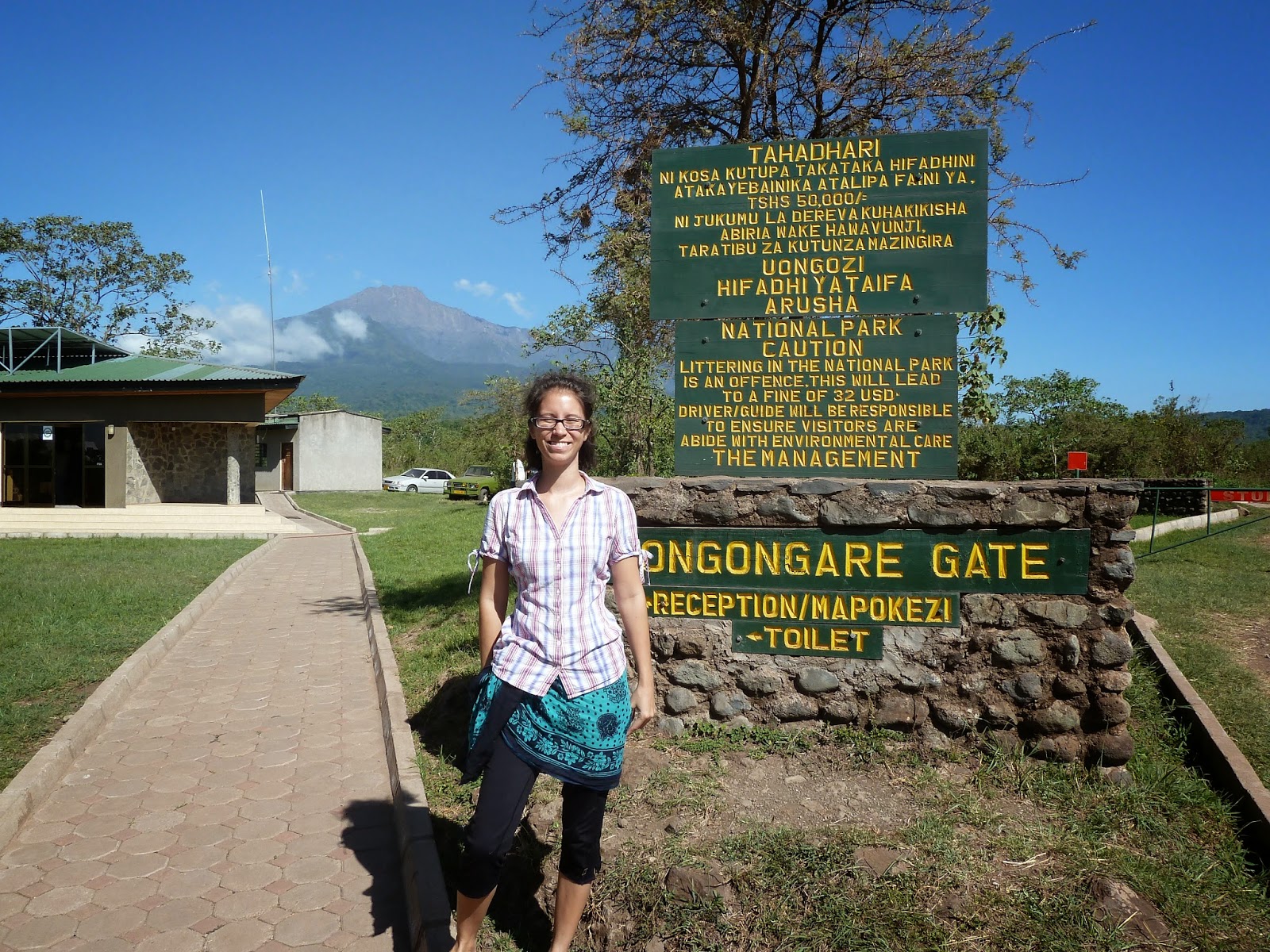Only 12 days left in the village. It feels kama jana (like yesterday) that I arrived with my suitcase of impractical items. Time flies when you're
having to continually think of new recipes that involve only three vegetables
and some out of date stock cubes.
Last month I learnt how to make bread. Only two of my loaves
have resembled small bricks and I'm feeling confident about my chances of being
a professional baker when I get home if the NHS won't have me. I am going to
miss many things I've come to love in Nyangao. Having a cleaning lady tidy up
after my baking disasters especially. I'll miss our security guard who sits
outside the kitchen window at night even though it's guaranteed he'll be asleep
before I am. Instead of traffic, police sirens
and the odd drunkard singing "Eye of the Tiger", I'm used to waking
up to chickens and dogs scuffling in the garden or the giant monitor lizard clawing
in the roof or the neighbours houseboy sweeping their garden.
.jpg)
I'll miss our Friday night tradition of going to the Old
Trafford for a chip omelette and a semi-cold Pepsi (electricity
permitting), coming home with change from £1.50. The beaten up plastic chairs
and Formica covered tables that are carried out to the roadside when they see
us coming. Listening to the same CD of Bongo
Flava 'toons' clashing with the Muslim call to prayer and enjoying the sudden pitch black of a power cut and the milky
way shining overhead.
.jpg) |
| Our Friday night hotspot |
At the market I've embraced buying the same selection of
vegetables, my own doing as I haven't been inclined to sample the piles of dried
fish or a piece of meat freshly hacked off the rump of a cow/pig/goat. I like
that the flour shop is next to the bean shop which is close to the egg shop
across from the man selling milk and juice. But I won't miss being watched at
as I walk past. It's tiring pretending I don't hear the whispers or feel the
stares.
Why don't people wear Obama shirts, Obama belts or use Obama
brollies back home? Everyone loves an Obama lollipop...
I suppose I'll have to get used to sorting out the rubbish
again and not just throwing it in the pit or watching James burn it in the
garden. Tea bags not tea leaves, hot
showers instead of cold, make-up not au
naturale, toilet paper and not my hand...only kidding.
.jpg) |
| A scenic spot |
I won't miss the salty tap water, local transport, or having
feet that never get clean. Goodbye
mosquito bites, scabs and scars. Hello not needing to use a surge protector,
mosquito net or a dose of antibiotics after a dodgy looking piece of chicken.
I'll happily say farewell to fried chips, fried cassava, fried bananas, fried
bean balls, fried rice dumplings and fried pork scraps...well, maybe not the
fried pork scraps, they are pretty darn delicious.
.jpg) |
| Fried pork scraps aka Kitimoto |
It will be strange not having to keep one eye on the ground,
sandy and uneven, with randomly located crevices, creatures and cow dung. Or
checking door frames for geckos - more than one has met his untimely death by
decapitation. Skimming the rice water for floating insects, picking bugs from
the flour and flicking ants off the cake. But I can't wait for anonymity,
blending in, being invisible. Not being asked for money, presents, my trainers or
my clothes.
.jpg)
The Tanzanian obsession with the mobile phone still gets me.
Everyone has one, two or three different numbers, usually in a multi-sim
handset. A call never goes unanswered even if it is the relative you really
don't want to speak to or you're in the middle of a very important meeting. If
I ever deign to not answer a call from someone there is guaranteed to be some
fierce words the next time I see the person I ignored. The cultural norm of
protracted greetings has extended into the phone conversation. More than once
I've answered a call from a colleague only to be none the wiser afterwards as
to its purpose.
Colleague: What's your news?
Me: I'm fine. What's your news?
Colleague: I'm fine
Me: (Pause slightly, expecting there to be a reason for the
call) Are you at work?
Colleague: I am leaving now
Me: Sorry you're working. And I'm sorry it's raining a lot.
Colleague: Thank you. Have a good night.
Me: And you
Colleague: OK
Whilst greetings are paramount to making a good impression,
please's and thank-you's are not. Nor, apparently, is saying goodbye. At the
end of an evening people will get up and leave without a farewell and last
month a colleague at the hospital left their job and their home without telling
a single person.
There's a lot to be said for the simple life. No TV, radio,
restaurants, cinemas, trains, traffic, fashion police or indeed any real police
of any kind. Where making solar-eclipse viewing devices, Yahtzee tournaments,
and scouring the sky at 9.30pm, 45° south for the International Space Station
are highlights of the week.
 |
| "I think I can see the sun!" |
Most of all I will miss the people. The funny people, the
happy people, the odd people, the nuns, my colleagues, my neighbours, my
housemates. A wise person once told me it doesn't matter where you go in life,
it is always the people that you remember. He was probably right. I only hope I
forget that crazy guy who follows you around the village with a broken camera
dangling around his neck.
.jpg) |
| Sister Columba, my favourite nun |
Dedicated to James A. Davies - who left the village for the final time May 21st 2014.
 |
| James (R), unknown boy (L) |

.jpg)
.jpg)
.jpg)


.jpg)
.jpg)
.jpg)
.jpg)
.jpg)

.jpg)































.jpg)




